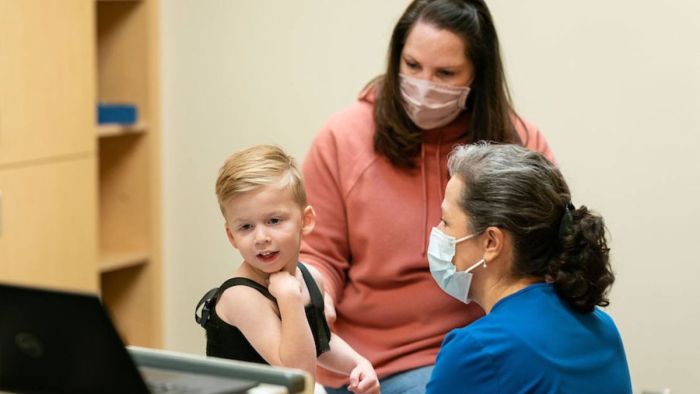Gillette is excited to launch its Family Engagement in Research (FER) program. As one of just a handful of US research programs using FER, this program continues a tradition of innovation and builds on the organization’s belief in the power of collaboration in research.
FER is a collaborative, best-practice approach that equally values contributions from lived experience partners (LEPs), clinicians, and researchers in all phases of the research process. By actively and equally engaging researchers, clinicians, and LEPs, we create groundbreaking and meaningful research that unites expertise, compassion, and real-life insights, increasing the quality and value of our studies.
The FER program at Gillette aims to create innovative, impactful, and inclusive research that supports the best possible outcomes and improves the quality of life for patients and families at Gillette and worldwide.
LEPs Integral to Success
LEPs are an essential part of the FER program at Gillette. LEPs are individuals, or primary caregivers of the individual, who have a musculoskeletal or neurological condition treated at Gillette. “Lived experience” refers to experience with special healthcare needs, especially the day-to-day tasks including appointment coordination, care team management, daily caregiving, navigating disability programs, insurance, and more, that occur outside clinic or hospital walls.
Training is required for all members of the team assuring LEPs are familiar with the research process and are informed partners. As part of FER, researchers and clinicians are trained in a new way of conducting research in collaboration with LEPs.
Many organizations that fund research through grants may require LEPs to be included in the project. For example, PCORI-funded grants currently require the use of LEPs. Many high-profile publications such as the NIH also encourage, recommend, or require the use of Lived Experience or Patient Partners in the research projects they publish or feature.
What value do LEPs bring to research?
The level of engagement, role, and expectations for LEPs are guided by the principal investigator for each research project. Engagement can range from attending meetings and giving advice to being an equal partner or final decision-maker.
LEPs provide critical and unique expertise about ‘life outside the clinic walls’ to all facets of research, allowing research teams to consider more perspectives and increase the impact of research results. Some examples are:
- Idea generation/research question refinement and/or prioritization
- Define/develop research grant proposal and/or research protocol
- Review documents for recruitment/study materials and provide feedback
- Interpretation/contextualization of results
- Disseminate research findings
Gillette’s commitment to FER is built on the promise to provide exceptional healthcare to patients. By putting families at the center of not just clinical care and special projects, but research initiatives as well, Gillette can confidently offer meaningful recommendations and findings to improve care for all.
Get Partners in Care Stories in your inbox!
Subscribe to Partners in Care Journal, a newsletter for healthcare providers and community health professionals.
Subscribe Today Home Page
Home Page



